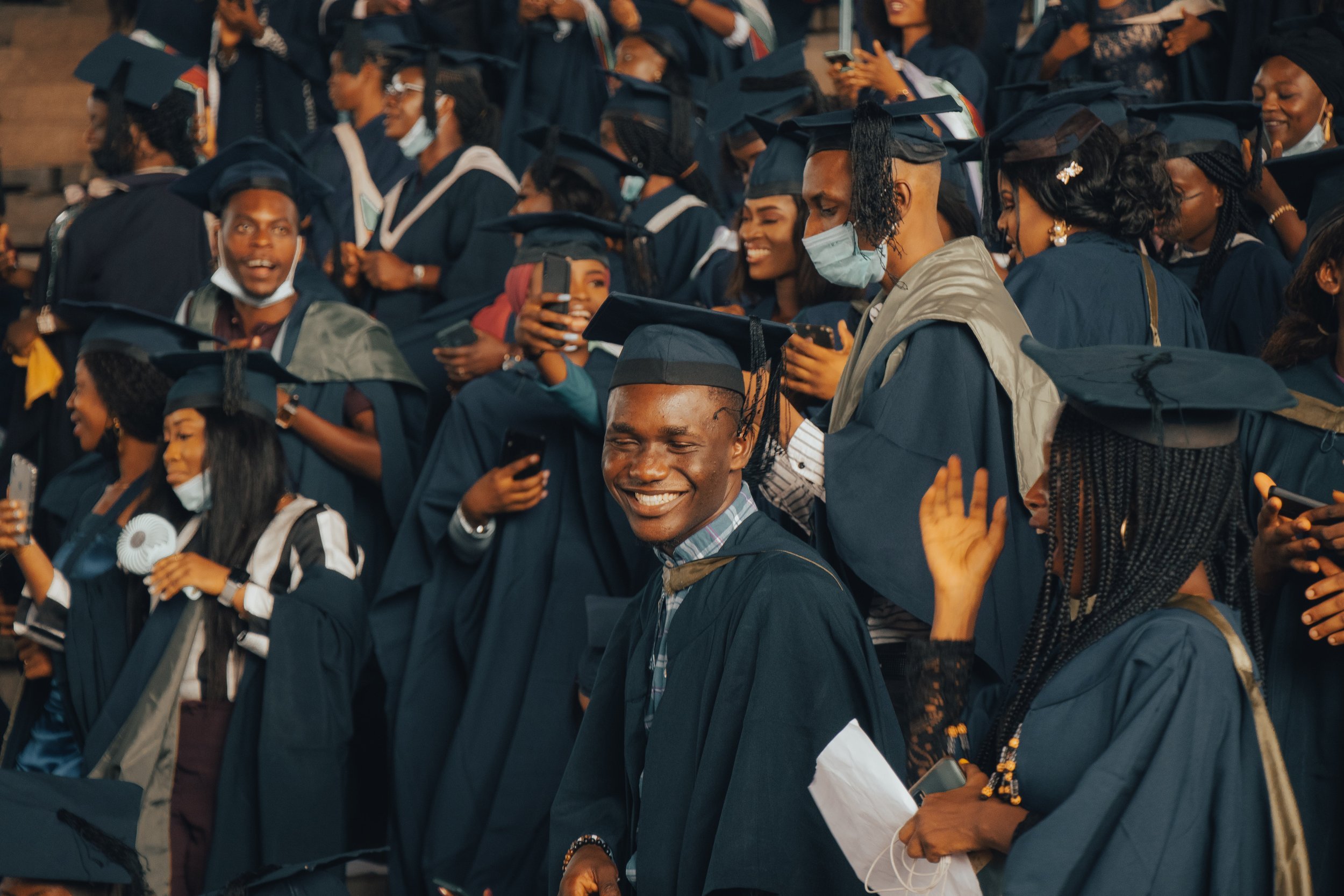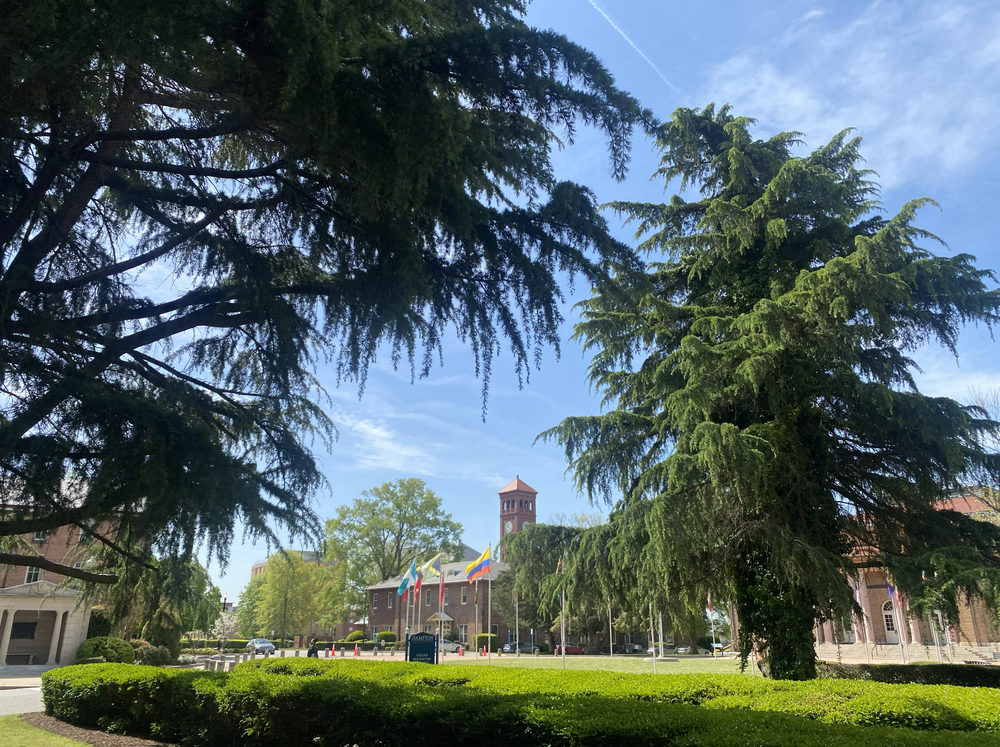Underfunding Prevents Black Students from Attending HBCUs. It’s Time to Change That.
American society has promised the Black community advancements in equity and inclusion for decades. It’s time to put the money where the mouth is and properly fund HBCUs.
By Christin Fluellen
As a senior in high school, Alayna Jones dreamed of going to Hampton University. Since her first campus visit in eighth grade, the Detroit native envisioned herself being successful alongside other Black students and enjoying the culture of Historically Black Colleges and Universities.
But when the time came to attend college, Jones was not on her way to Hampton as her 14-year-old self anticipated. Instead, she was driving to a predominantly white institution in her home state of Michigan.
“I’m happy with my decision, but I always think about the dream school I’ve had since I was a little girl,” says the 19-year-old sophomore on a full-ride scholarship at Central Michigan University.
Hampton University student Arthur Harrington speaks to U.S Sen. Ben Cardin as a legislative intern. Courtesy Arthur Harrington
Jones' story is not unique. She is one of many Black students who had no choice but to forfeit their dream of attending and immersing themselves in the culture of a Historically Black College or University, often abbreviated to HBCUs, due to difficulty financing their education.
“Considering that our HBCUs are not heavily funded as predominantly white institutions (are), that may be a disadvantage in regards to scholarships,” says Arthur Harrington III, 20, of Detroit, who is completing his sophomore year at Hampton University in Virginia. “Considering the endowment may not be as large as PWIs, they may not be able to provide as many scholarship opportunities and give students some of the financial resources that they may need, or be able to at least give a wide range.”
According to Afro.com, a news source that focuses on race equality and economic advancement, the total endowment for the top 10 HBCUs combined in 2020 was a little over $2 billion, while the endowment for Harvard University alone was $40.9 billion. These numbers showcase a vast disparity in donations between HBCUs and PWIs, or predominantly white institutions.
But why do these disparities exist? “It's all kind of like this trickle-down effect of systemic discrimination,” says Omari Jackson, an associate professor of urban educational leadership at Morgan State University in Baltimore. Jackson explains that alumni are not often able to give back in large amounts due to challenging familial and social situations that Black people may face as a result of structural inequity. He adds, “You don't have as many programs like a medical school or law school that bring in those big research dollars to have a bigger endowment.”
Ada Nicole Smith, an education consultant, president of Detroit’s alumni chapter for Xavier University of Louisiana and two-time Xavier graduate, also agrees that centuries-long oppression is responsible for HBCUs’ financial issues. “If you look at again how (HBCUs) were founded, who were a lot of your initial graduates … you don't have the wealthier population,” she says.
Prior to the Civil Rights Act of 1964, HBCUs were founded to educate African Americans, while other institutions subscribed to discriminatory laws and practices that excluded them. Today, HBCUs are still important for Black students seeking post-secondary education.
Photo by Adedire Abiodun via Pexels
In a society flooded with racism, HBCUs are a safe space for Black students who want to be educated without having to worry about marginalization in their classrooms.
Camilla Goree, 25, of Detroit, attended the University of Detroit Mercy before transferring to Alabama A&M University in Huntsville, Alabama.
“They weren't really supportive, and they were actually wanting to see me fail. They kept telling me that I wasn't built for the STEM field (and) that I needed to change my major” Goree says about her initial college experience. “I was really tired of just being like, the sole minority. I also just felt like I needed some people that I knew were for me.”
HBCUs provide their students and faculty with genuine support, from both a communal and academic perspective.
“We identify with people. When we have these shared experiences, I think it makes us want to invest in people like us because we want to see our people do well. And so at an HBCU, there's a much more family-oriented community,” Jackson says. “At an HBCU, I don't have to explain or apologize for my interest in Black people, in terms of teaching Black people, in terms of researching Black people, in terms of serving the Black community. I don't have to justify it.”
HBCUs play a critical part in the success of African Americans nationwide, producing almost 20% of all Black graduates though they compose only 3% of the country’s colleges and universities, according to the United Negro College Fund. Among Black graduates, HBCUs produce the following: 40% of congress members, 40% of engineers, 50% of lawyers and 80% of judges, according to the Thurgood Marshall College Fund.
“We need HBCUs for the connection, and to show them that Black people are excellent, no matter what,” said Destiny Brickerson, 20, of Detroit, a junior at Norfolk State University in Virginia.
The success that HBCU graduates have can be attributed to how the institutions have many leadership opportunities available to students on campus. “I've been a campus tour guide. I had an internship with the College of Business, being a student marketing assistant. Now I'm about to be a residential assistant in the fall. So I think that (my HBCU) definitely helps me in terms of getting prepared for the real world,” says D’vontae Scott, 18, of Detroit, who is beginning his sophomore year at Delaware State University in Dover.
Delaware State University's Royal Coronation, a tradition at HBCUs. Photo courtesy of and featuring D'vontae Scott
HBCUs also produce more low-income Black graduates than their non-HBCU counterparts. HBCUs graduate Pell-grant eligible Black students at a rate of 37.8%, compared to non-HBCUs at 32%, reports The Education Trust, a nonprofit that specializes in educational research regarding students of color and students from low-income families.
In addition to providing academic and professional success, HBCUs generate $14.8 billion in economic impact annually and 134,090 jobs for their local and regional economies, according to UNCF. Despite their financial contributions, they have been cheated out of $12.8 billion in funding from state governments alone, according to an analysis by Forbes.
Hampton University’s campus. This photo showcases the Circle of Nations and Memorial Chapel. Photo by Christin Fluellen
Though HBCUs are still underfunded, companies are beginning to realize the value of investing in Black institutions. Google and Apple have donated millions to HBCUs. Microsoft and NBCUniversal have established partnerships to support students from HBCUs in an effort to diversify their workforces and give back to underrepresented communities. Despite steps in the right direction, changes must be made on a systemic level. Federal, state and local governments must fund HBCUs as they do non-HBCUs.
Although all Black students will not choose to attend an HBCU for their collegiate education, they deserve to consider them without financial burdens being a worry. HBCUs should have the resources to offer more students scholarships and grant them the opportunity to “be their authentic selves, learn to love themselves, appreciate everything about their culture and thrive academically,” Smith says.
Jones is content with her college experience at her university in Mount Clemons, Michigan where she is studying broadcast and central arts. Even so, she has not ruled out attending an HBCU in the future.
“I’ve considered transferring to an HBCU or attending grad school at one,” she says. “I have yet to give up on my dream of being involved with an HBCU.”





